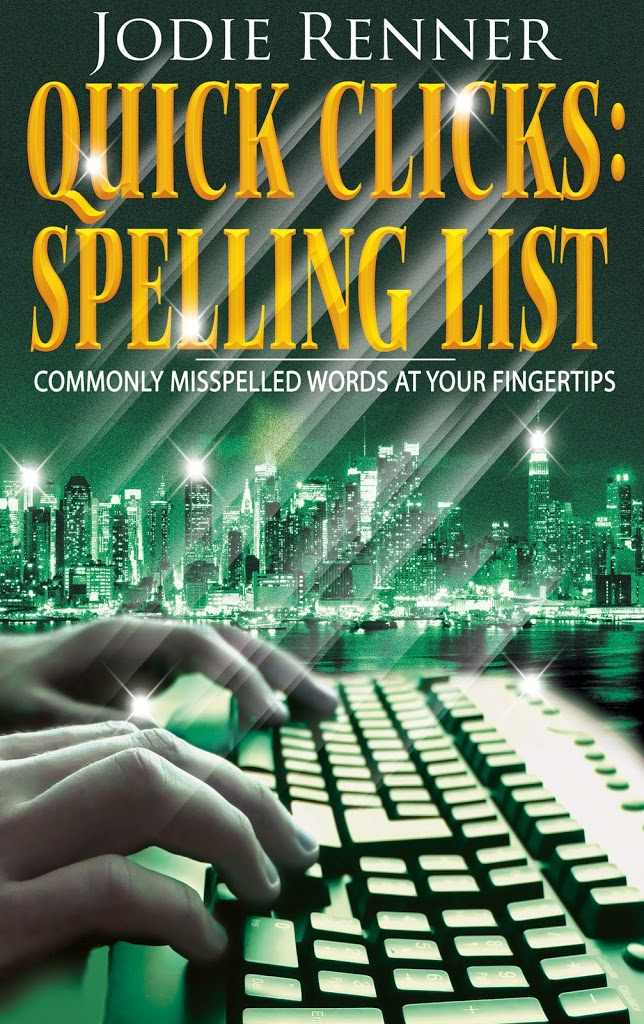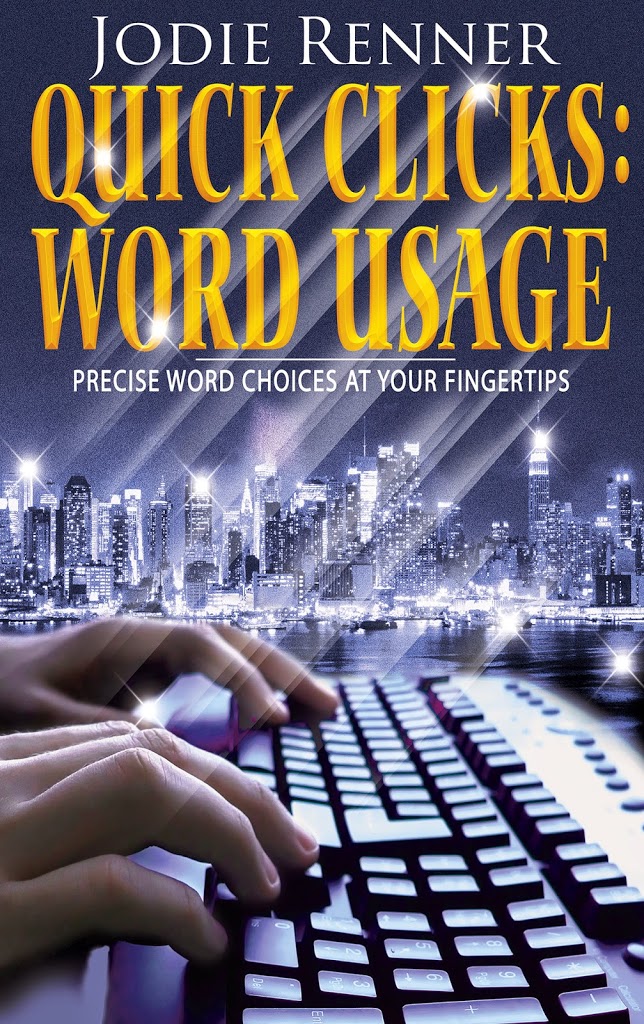… that is the question
by Jodie Renner, editor, author, speaker
NOTE from Jodie: FOR AN UPDATED, REVISED, EASIER-TO-READ VERSION OF THIS INFO, CLICK HERE.
[Check out my two handy, clickable, time-saving resources for writers, editors, students, and anyone else with writing projects: Quick Clicks: Word Usage – Precise Word Choices at Your Fingertips and Quick Clicks: Spelling List – Commonly Misspelled Words at Your Fingertips. With all kinds of internal links, they’re both super quick and easy to use!]
Today I’m wearing my “Grammar Geek” hat to talk about using hyphens in fiction, nonfiction, blog posts, articles, etc. Hyphens, properly used, can actually eliminate confusion and clarify meaning. And chances are that even if you’re a really good speller, some or a lot of you, like me, often forget whether a term is hyphenated or not, so here are a few handy guidelines.
~ Is it one word, two words, or hyphenated?
According to Chicago Manual of Style (that and Merriam-Webster’s Collegiate Dictionary are considered the go-to resources for copyeditors and proofreaders), “Far and away the most common spelling questions for writers and editors concern compound terms—whether to spell as two words, hyphenate, or close up as a single word.”
When we’re busy writing, it’s easy to forget, for even the easiest words, whether it’s one word, two words, or hyphenated. Often, it can be all three, depending on the part of speech.
For example, it’s “lookout” for the noun –“Let’s head to the lookout” – but “look-out” for the adjective – a look-out tower – and “look out” for the verb – “Look out for snakes.” Similarly, castoff is a noun – “It’s a castoff”; cast-off is an adjective – “She wore cast-off clothes”; and cast off is a verb – “He cast off the boat and we headed downriver.” Many others follow the same pattern: cooldown (noun) – “We did a 10-minute cooldown”, cool-down (adj) – cool-down exercises, and cool down (verb) – “Time to cool down”. Same thing with login (noun), log-in (adj), and log in (verb). And finally, takeout (noun, M-W), take-out (adj., M-W), and take out (v, M-W).
See a pattern here? Very often, the noun form is one word, no hyphen, the adjective form is hyphenated, and the verb is two words. (Although English being English, of course there are always exceptions!)
~ Hyphen between prefix and root word?
And what about all those words with prefixes like re, un, de, pre, bi, mid, over, under, semi, sub, etc.? Is it re-read or reread? over-conscientious or overconscientious? extramarital or extra-marital? under-employed or underemployed? semicircle or semi-circle? sub-category or subcategory?
Merriam-Webster and Chicago Manual of Style both favor not hyphenating after a prefix, so according to these two recognized authorities, none of the above should be spelled with the hyphen. But British and Canadian dictionaries seem to hyphenate them more often.
However, for some reason, Merriam-Webster puts a hyphen after the prefixes self and well, as in self-defense, self-discipline, well-mannered, well-endowed, etc.
And sometimes you need the hyphen to clarify meaning. For example, you recover a lost wallet, but you re-cover a sofa. Similarly with re-creation of the scene of a crime, to avoid confusion with recreation as leisure-time activities.
~ Hyphenate compound modifiers before a noun?
Today’s post is mainly on using hyphens (or not) for compound terms (phrasal adjectives) that describe a noun, as I get asked about this a lot. For example, is it …?
A general guideline is to hyphenate two or more modifiers before a noun (so an adjectival phrase), especially if to leave as two words could cause confusion; but to leave as two separate words when they come after the noun or verb (often functioning as an adverb).
For example, “He’s a high-profile actor” but “He maintains a high profile.”
“It’s a middle-class neighborhood,” but “The neighborhood is middle class.”
“He asked an open-ended question,” but “The question was open ended.”
“It was a hands-down win,” but “They won hands down.”
“It was a computer-literate group,” but “The group was computer literate.”
“The school has a hands-off policy,” but “Keep your hands off.”
“They had a hand-to-mouth existence,” but “They lived hand to mouth.”
“The witness was an off-duty police officer,” but “He was off duty at the time.”
“I bought a flat-screen TV,” but “The TV has a flat screen.”
“My to-do list,” but “My list of things to do.”
“We strolled past side-by-side boutiques on the street,” but “Two clothing boutiques stood side by side on that street.”
“This thriller will keep you on the edge of your seat,” but “It’s an edge-of-your-seat suspense.”
~ Hyphenate to avoid confusion.
To avoid confusion or ambiguity, it’s often best to hyphenate.
For example, there’s a big difference in meaning between a small animal hospital (an animal hospital that’s small) and a small-animal hospital (a hospital for small animals). Same with a small business owner and a small-business owner. And the hyphen in “three-ring binders” tells us that three is the number of rings, not the number of binders, as might be assumed with “three ring binders.” Similarly, the hyphen in “much-needed advice” connects the much with the needed, so we know the advice is greatly needed, not that there’s a lot of needed advice. And the hyphen in “fast decision-making” shows us that decisions must be made soon, not that they’re quick decisions.
Sometimes, to clarify, you also need to separate a word into two. For example, a used-book store is different from a used bookstore. And high school-age children could imply something different from what was meant.
~ Hyphenate where numbers are involved.
Chicago Manual of Style says to also hyphenate adjective-noun modifiers, especially where the adjective is a number:
For example, a twelve-step program, a five-year-old child, a five-dollar bill, a ten-mile hike, a six-foot-tall man, a ten-pound fish, a 16-foot square room.
Notice how when hyphenated before a noun, the plural is dropped: for example, a woman is five feet tall, but she’s a five-foot-tall woman. Pregnancy lasts nine months but it’s a nine-month pregnancy,
~ Multiple hyphens in a phrase.
Hyphenate when three or more words form an adjective (or rephrase the sentence to avoid it):
high-school-age children (to avoid confusion with “high school-age children” (not a good thing!), a sixty-foot-long boat, an over-the-counter drug, a winner-take-all contest, a one-on-one game.
~ But don’t hyphenate after –ly adverbs:
Since the ly ending with adverbs signals to the reader that the next word will be another modifier, not a noun. For example, a sharply worded reprimand, a smartly dressed woman, a hastily written email.
~ The trend toward closed compounds (one word, no hyphen):
Common usage has a tendency to simplify terms. “Web site” gradually became “website”; “e-mail” is increasingly “email”; “on line” changed to “on-line” to “online”. (Also, “Internet” became “internet,” which makes perfect sense to me – why capitalize it, since we don’t capitalize other means of communication, like telephone, newspapers, television, etc.)
 If you want even more detail and examples on hyphenation, you can register at Chicago Manual of Style online and do a search for “hyphens” or “hyphenation” or go to these numbers: 5.91 and 7.77 to 7.85.
If you want even more detail and examples on hyphenation, you can register at Chicago Manual of Style online and do a search for “hyphens” or “hyphenation” or go to these numbers: 5.91 and 7.77 to 7.85.
Also, see my blog post, How and When to Use Hyphens, Dashes, and Ellipses.
Jodie Renner is a freelance fiction editor and the award-winning author of three craft-of-writing guides in her series An Editor’s Guide to Writing Compelling Fiction: Captivate Your Readers, Fire up Your Fiction, and Writing a Killer Thriller. She has also published two clickable time-saving e-resources to date: Quick Clicks: Spelling List and Quick Clicks: Word Usage. You can find Jodie at www.JodieRenner.com, www.JodieRennerEditing.com, her blog, http://jodierennerediting.blogspot.com/, and on Facebook, Twitter, and Google+.

